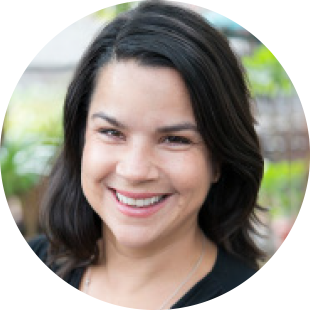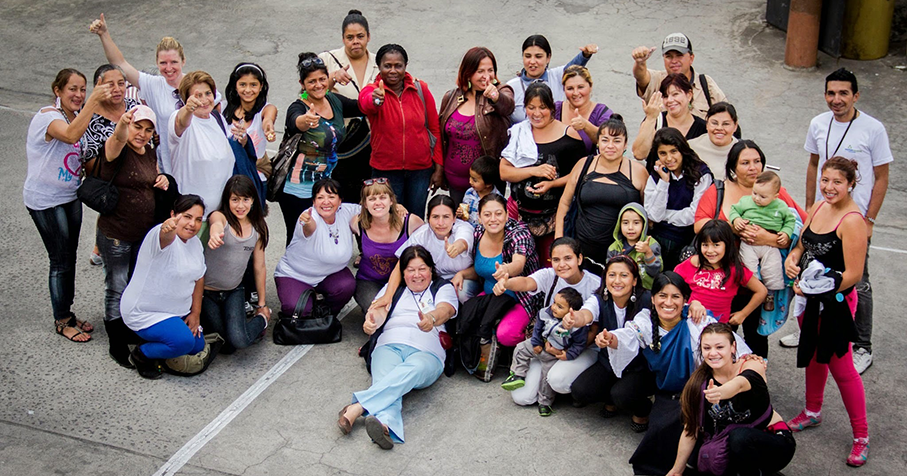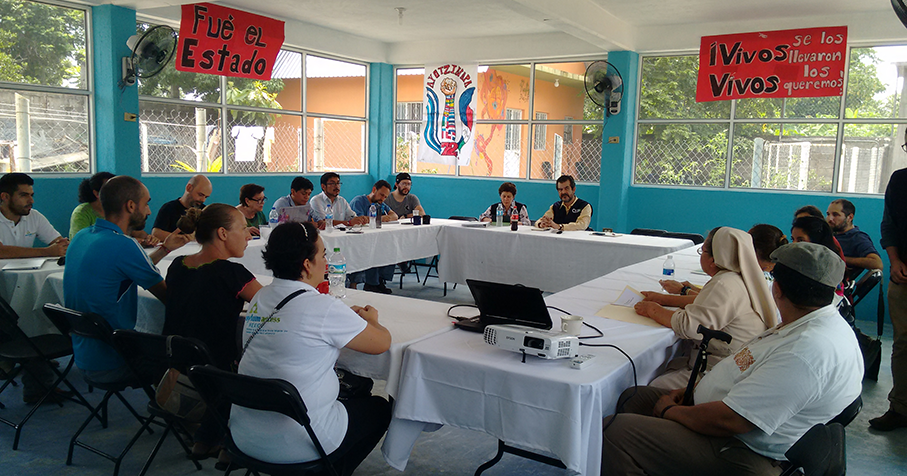Fleeing to Safety
Apr 25 2017
In 2017, Asylum Access received a grant through RSF to scale its women’s legal empowerment program. This conversation with Amalia Greenberg Delgado explores the often difficult experiences of refugee women and highlights her nonprofit’s efforts to combat vulnerability and encourage self-advocacy.
2017, Asylum Access received a grant through RSF to scale its women’s legal empowerment program. This conversation with Amalia Greenberg Delgado explores the often difficult experiences of refugee women and highlights her nonprofit’s efforts to combat vulnerability and encourage self-advocacy.
Amy: I’d love to hear about the genesis of your involvement in Asylum Access.
Amalia: I had been working in different countries either starting or helping to launch refugee’s rights programs. I worked in Egypt and Turkey and Ecuador, and was motivated by what I saw on the ground. A group of us then came together, seeing an opportunity to develop a U.S.-based refugee rights organization. That’s where my involvement started with Asylum Access. I was on the board of directors for the first eight years. Then, the last four years, I joined the staff and am now the Global Programs Director. I oversee our programs in five countries and seventeen locations
In the news, the picture of a refugee is either that of a man or a child, yet women make up a significant percentage of refugees. Are refugee women being ignored?
About 80% of refugees are women and children, and most refugees are only one or two borders away from home. We’re talking about refugees who are in Africa, Asia, and Latin America, and many who are living in camps and detention centers.
With regard to the news, it’s important to remember that refugee women are vulnerable to abuse and violence. And to survive, they hide from attention, or their abusers keep them in the shadows. This makes men more visible in a displacement context.

An Asylum Access Ecuador Women’s Empowerment Group. Photo by Sandra ten Zijthoff.
Could you speak more to the unique challenges that refugee women face?
What we’ve seen is that the discrimination and violence that women generally face magnifies during forced displacement. Refugee women and girls are especially vulnerable to sexual and gender-based violence, human trafficking, forced prostitution, labor exploitation, survival tests, and other cross-cutting threats. They’re often denied minimal protection. They live and hide on urban margins or are confined in camps where sexual violence is rampant, and access to justice may be nonexistent. In Ecuador, for example, a country where we work, we know that about 70% of refugee women have been subjected to such violence.
One of the things that we’re doing to combat this vulnerability is ensuring that women have access to legal advice and know how to navigate the legal system themselves. Oftentimes, with refugees, they find themselves locked out—unable to access police protection, file a restraining order, or begin a court process.
With the reality of over 80% of the 21 million plus refugees in the world today being women and children, how does Asylum Access connect with those women who are most in need of your services?
The organization currently counts on women leaders—national directors and legal empowerment coordinators—located in the five countries where we are. Sometimes, these women are refugees themselves.
For instance, we have a client, Suzanne, in our office in Tanzania. She was a refugee from the Congo whose father was brutally murdered. She was kidnapped and forced into marriage with a Mai-Mai rebel. She escaped the Congo with her children and found her way to Tanzania. There, we offered legal services and helped her gain a work permit. She is now the owner of a thriving restaurant and hires both Tanzanian nationals as well as other refugees.
“What we’ve seen is that the discrimination and violence that women generally face magnifies during forced displacement.”
What tools does Asylum Access use to empower refugee women?
The Women’s Empowerment Groups are key. We see a need to ensure that there are adequate support structures to help refugee women make the journey from being victims to survivors to empowered advocates for themselves, their families, and their communities. These groups are made up of refugee women who meet regularly, led by our staff and volunteer legal advocates. There, we offer a wide range of services and introduce topics that help refugee women build their identities and their self-confidence. They can seek self-care and overcome trauma from past violence. They can also gain skills to start businesses or understand their rights as workers.
One person who benefited from the groups is named Isabel; she fled from Colombia after receiving repeated death threats. She traveled to Ecuador, where we have an office. She initially worked as a housekeeper and found it difficult to access any sort of permanent employment for two reasons: she was undocumented and faced discrimination because of her skin color. Isabel faced constant verbal abuse, and her employer was refusing to give her full payment. Our office offered her legal information and helped her to achieve legal status.
She joined our monthly women’s meetings, which provided a safe haven and emotional support. Through this group, she gained new skills, including self-defense and chocolate making. Since then, Isabel has been able to formalize a contract with a new employer that allows for access to social services and ensures that her wages are paid.
Recently, Asylum Access launched women’s legal empowerment programming in Tanzania and Malaysia with lead grant support from an RSF donor-advised fund. Could you speak more about that initiative?
The Women’s Empowerment Group program was first launched in Ecuador. The model that we developed looks at the experience of a refugee woman in a holistic way—thinking about the trauma she arrives with as well as her legal and livelihood needs. All of these necessities were evaluated and integrated into a program where refugee women are seen as whole.
We brought in facilitators from the community as well as our own experts so that we could set an agenda that would help these women overcome barriers and begin to walk on their own. This model is now being used in our offices in Tanzania, Thailand, and Mexico, and it will soon be rolled out in our office in Malaysia.
Part of the reason we’re able to do this is because of the support and funding that we received through RSF. That donation has helped us scale our model and promote it as a valuable tool for supporting refugee women.
I’m curious about the emotional needs of these refugee women. Could you share more on that?

Asylum Access Mexico Reunion de Trabajo. Photo by Jorge Acero.
One of the things that we’ve seen in our work with refugees is that trauma lasts much, much longer than a legal procedure to get them status. Therefore, our staff is trained to work with people who come with trauma in order to be able to respond to their needs and prepare them for what might be a grueling interview process during which they must relive the trauma. We work closely with social workers and bring in psychosocial support as well.
What changes have you seen in refugee women who participated in your programs?
I mentioned Isabel. She now has become a key refugee leader in her community. The empowerment that she’s found through our program as well as through her connections with the rest of the community has led her to speak out and become a visible advocate in Ecuador. I have a quote from her where she says, “In the women’s group, I de-stress, and I open up. I listen to the experiences and feel like I’m part of a family instead of feeling isolated from the world.”
That’s amazing! Thank you for sharing. I just have one more question for you: what can the RSF community do to support refugee women?
I love this question. As business owners, as managers, and as leaders in our industries and our communities, I ask that we challenge ourselves to think about our own individual responsibilities in seeking out refugees in our communities, of hiring refugees in our businesses, and in becoming involved where we see something not quite right. We’re in a time when refugees are being limited from coming into our country. It’s important to stand up and say that we are a nation that invites and welcomes refugees.
Amalia Greenberg Delgado is a co-founder of Asylum Access and leads the organization’s Global Legal Services and Community Legal Empowerment programs.
Amy Beck is a Senior Associate for RSF’s Client Engagement team.
This article was originally published in the spring RSF Quarterly.